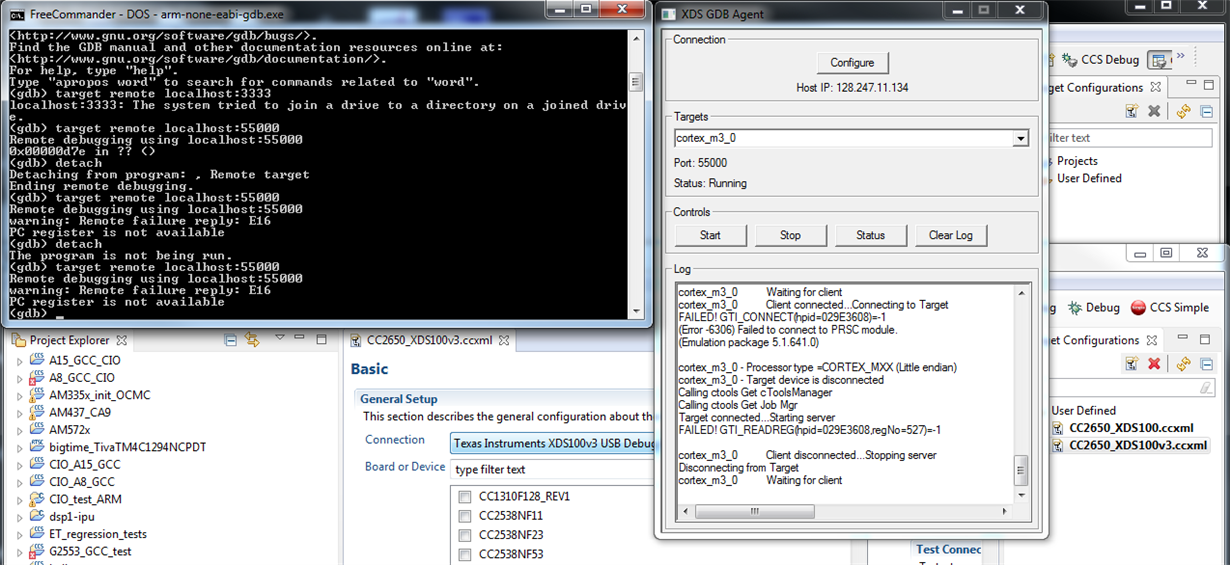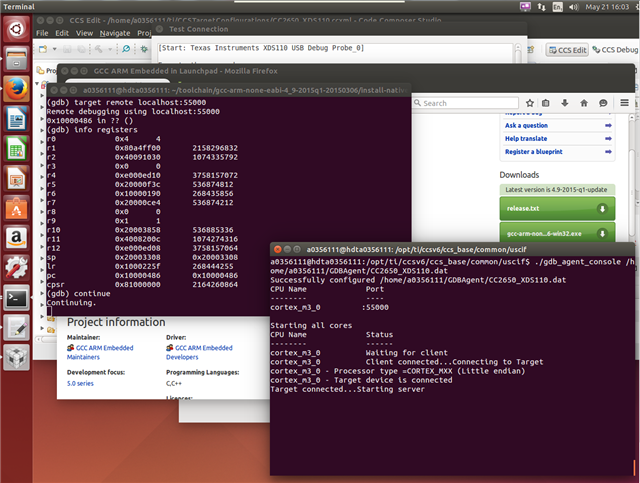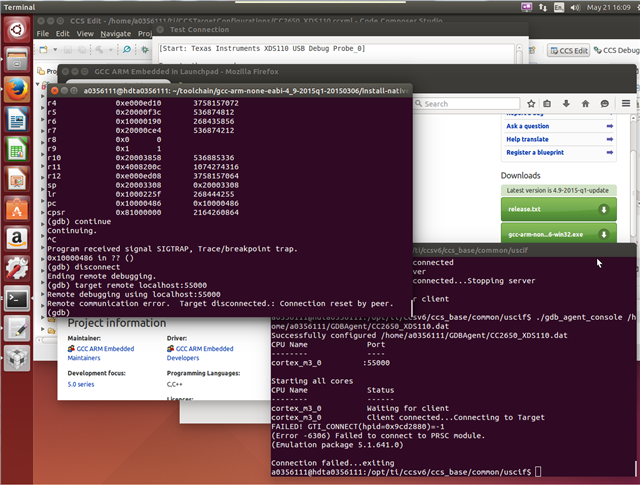Hi, I have been following this guide www.ti.com/.../swra446.pdf with the goal to use Uniflash to program a CC2650 sensortag on linux command-line. Installation and configuration goes smoothly up to the point of flashing:
sudo /opt/ti/uniflash_3.3/ccs_base/scripting/examples/uniflash/cmdLine/uniflash.sh -verbose 1 -ccxml ~/cc26xxF128XDS110c3fromuniflash33.ccxml -program myprogram.elf
(...)
> Connecting to the target for Flash operations ...
#
# A fatal error has been detected by the Java Runtime Environment:
#
# SIGSEGV (0xb) at pc=0x9ea29502, pid=30843, tid=2661145408
#
# JRE version: Java(TM) SE Runtime Environment (8.0_45-b14) (build 1.8.0_45-b14)
# Java VM: Java HotSpot(TM) Client VM (25.45-b02 mixed mode linux-x86 )
# Problematic frame:
# C 0x9ea29502
(...)
I always get this error, but actually sometimes (maybe 1 of 5) I can see from the output of the node that it has been programmed. When using GUI I see no error messages, but I see same results on the actual flashing (~1 out of 5 is actually flashed).
I have tried several different versions of java (8 and 7) and I tried both Uniflash 3.3 and 3.0, focused on 3.3.0.00053. For target configuration I used connection XDS110 USB Debug probe and Board CC2650F128. Doing this on a 32-bit Ubuntu 14.04. Sensortag is connected via a debugger devpack - flashing works fine using Flash Programmer v2 in Windows, I also get serial output from it in Linux.
Anyone tried this successfully before, or have any ideas? If more logs or dumps are needed, please let me know. Also tried digging in the Java dumps, but found nothing useful.
Regards,
Andreas




